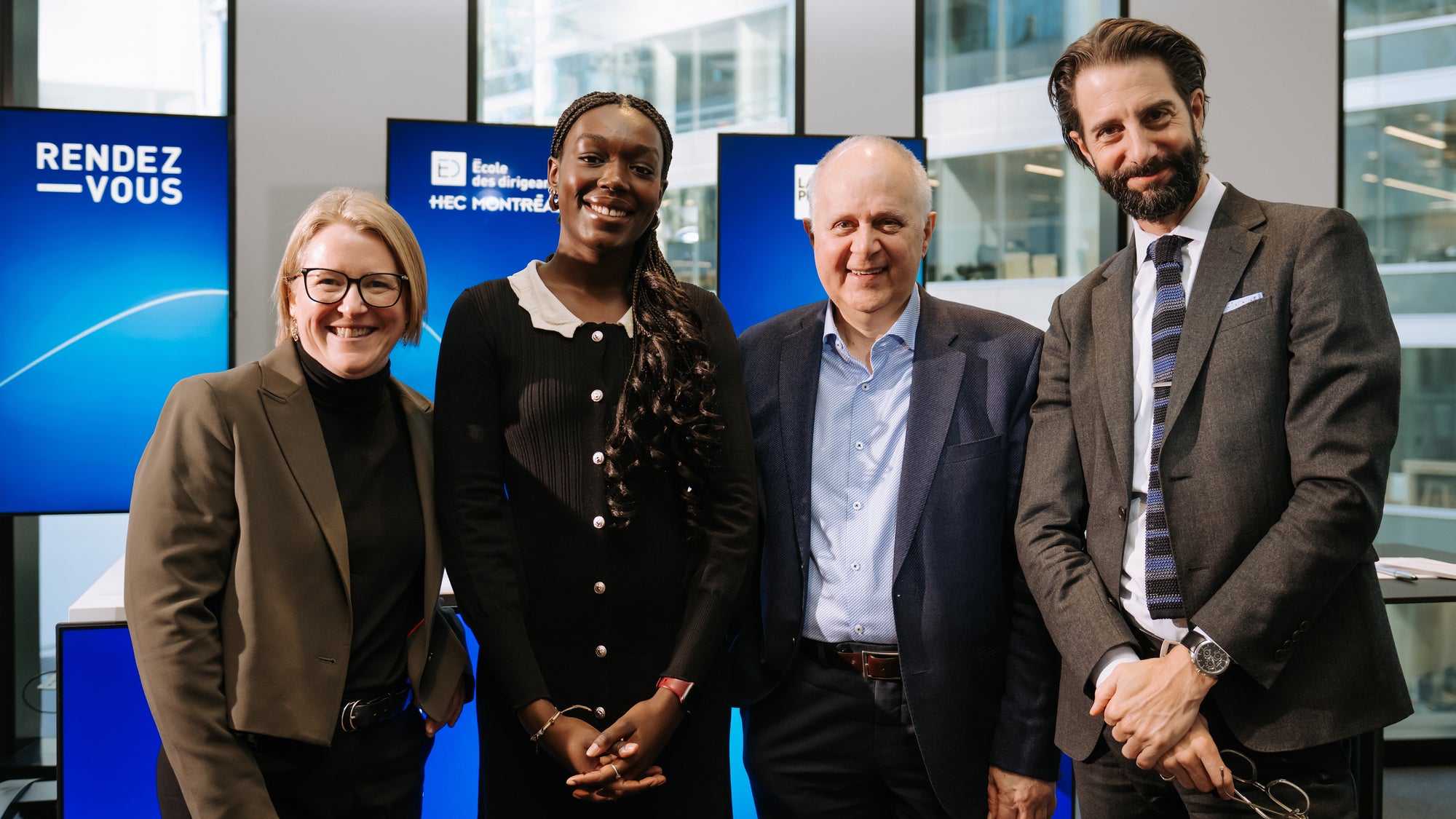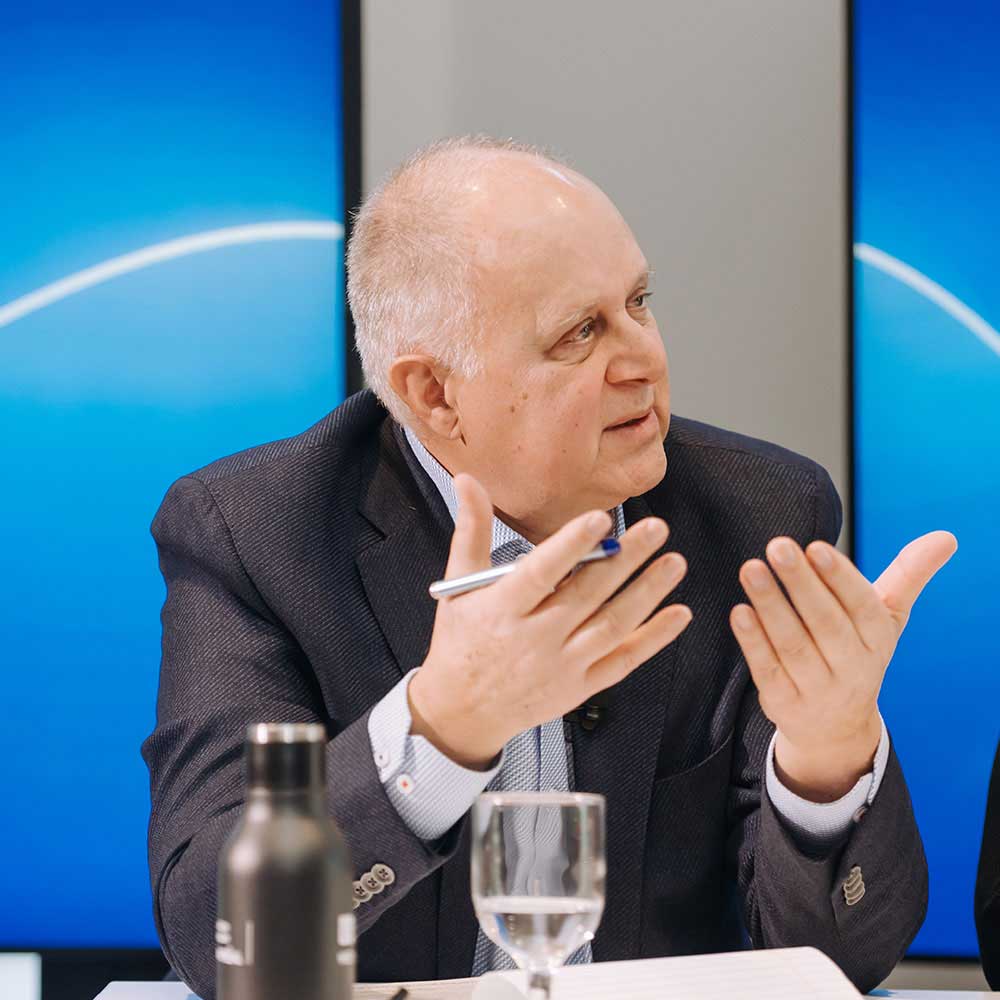Are Gen Zers Really Shaking Up the World of Work?

February 28, 2024
Born between 1997 and 2010, Gen Z is hitting the job market. And they are thought to have certain defining traits: Gen Zers, or Zoomers, are said to be unwilling to compromise, to put their personal lives ahead of their careers and to be in regular conflict with older generations. Is there anything to these stereotypes? What will be the impact for companies and managers as Gen Zers stream onto the job market?
To discuss these issues, Executive Education HEC Montréal conducted a webinar on the topic, Is the Gen Z Workplace Revolution a Foregone Conclusion?, in conjunction with La Presse. Moderated by François Cardinal, La Presse’s Vice-President, Information, and Deputy Editor, the event featured three panelists:
- Marie-Antoinette Diop, Director, Strategies and Policies, at the Québec Brewers Association, and member of Gen Z
- Sarah Legendre Bilodeau, CEO and Founder, Videns Analytics, a firm that specializes in data optimization and artificial intelligence, and Lecturer at HEC Montréal
- Alain Gosselin, Professor Emeritus, HEC Montréal, specializing in leadership, organizational development and talent management.



Zoomer Strenghts and Weaknesses
Gen Z is arriving on the job market with crucial technology skills, just as artificial intelligence is raising serious ethical dilemmas. Zoomers are creative, adaptable, inclusive and have a collaborative spirit organizations need.
“If you want to send Gen Zers running for the exits,” said Alain Gosselin, “present them with a rigid organization that operates in silos. They want an open playing field and the opportunity to grow.”
On the other hand, the managers Gosselin advises tell him that Gen Zers are not equipped at handling interactions with colleagues, receiving less-than-positive feedback and being told no. It’s quite a challenge.
A More Demanding Generation?
Zoomers are looking for good working conditions, dynamic teams and organizational values that are in line with their own. Gen Zers also want frequent holidays, rapid promotion and unlimited remote working. And they rarely keep the same job for more than two years.
But before pointing the finger at any one generational trait, Sarah Legendre Bilodeau suggests we consider that Gen Zers are hitting a job market characterized by full employment.
“This is the first generation that is in a position to negotiate their internship stipends,” she said. “[My master’s students] were coming to me with five or six offers.”
And while Gen Zers may be demanding of employers, they are equally demanding of themselves.
“In a service business like mine, the idea of billing hours to clients presents a challenge for some of my close Gen Z colleagues,” said Legendre Bilodeau. “They need to feel like they have given it everything they’ve got to be entitled to bill!”
Pandemic Fallout
Many Gen Zers finished their education via Zoom and started their first job working remotely, which was not conducive to acquiring social skills.
“We need to be around people to learn to ask the right questions or to network, or even just to observe our co-workers,” said Marie-Antoinette Diop.
This challenge is a sizeable one, given that the workplaces where Gen Zers want to interact with others are often empty, because their colleagues are working remotely.
Videns Analytics opened its virtual doors in 2018, but rented its first offices only in 2023, at the request of its Gen Z employees, who wanted to create the conditions for learning from colleagues.
“The challenge for businesses will be to offer flexibility and to perform effectively in hybrid mode,” said Legendre Bilodeau. “I’m not sure we’ve hit on the right formula yet.”
How Managers Should Respond
Gosselin argues that it is a good idea for managers to find common ground between the demands of Gen Z and the interests of their more experienced colleagues.
“Lots of Gen Z expectations are shared by other generations,” he said, pointing to work-life balance and corporate social responsibility for climate change. “Gen Z’s advantage lies in their numbers: they are arriving en masse on the job market in a short period of time. If they find allies, they will show us the way.”
Diop points out that some changes Gen Z is calling for would have happened 30 years ago if power dynamics had favoured older generations.
However, managers will have to find different solutions to the same challenges, based the needs of each employee.
“Generally speaking, we are headed toward a much more personalized work environment,” said Alain Gosselin.
Mental Health at Work
Gen Zers are comfortable talking about mental health. Even at work.
According to Legendre Bilodeau, “That’s a good thing. They are more aware of the signs of distress” and will head off problems before they become too serious. That is, provided that the pressure to perform, which Zoomers impose on themselves, doesn’t cause them too much anxiety.
For managers, though, it can be a minefield. “Managers are extremely uncomfortable with these issues,” said Alain Gosselin. “They are not prepared; they don’t know how to be helpful in addressing mental health.” This is particularly the case when the sources of anxiety are not directly related to work.
So, Is A Revolution Truly Inevitable?
“Yes, because we are here to challenge the status quo and question corporate values,” said Diop.
“Yes,” said Legendre Bilodeau, “because this is the generation that will entrench occupations and professions of the future in businesses.”
Gosselin prefers to reserve judgement: “I think Gen Z has plenty of qualities to disrupt the job market, which is what every new generation wants to do, but they may come up against obstacles along the way.”
Stay tuned!
The recorded webinar is available to watch now
Learn more about our upcoming events
Explore all courses



